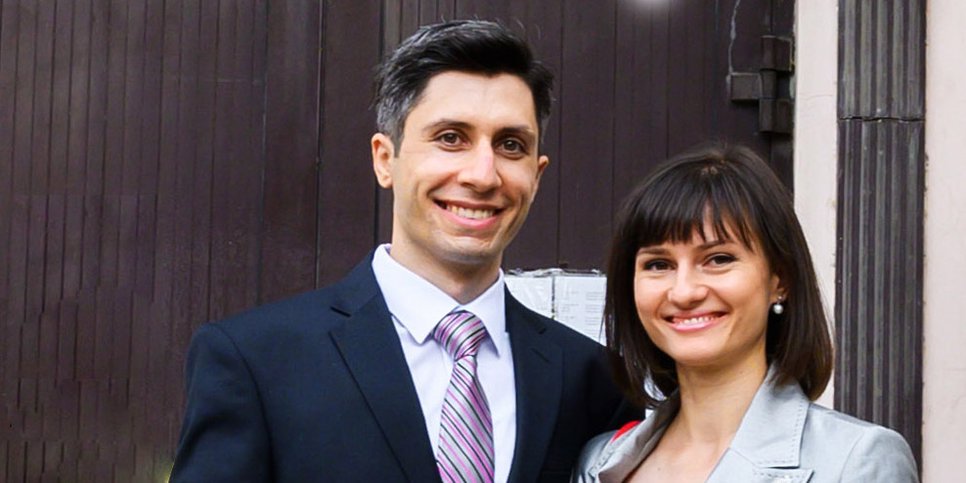In the photo: Ruslan Alyev with his wife
In the photo: Ruslan Alyev with his wife
On March 1, 2021, the Rostov Regional Court upheld the sentence against Ruslan Alyyev. The appellate court recognized him as a member of a banned organization. The believer will be conditionally imprisoned for 2.5 years.
The verdict has entered into force, but Ruslan Alyev still insists on his innocence. He has the right to appeal the verdict in cassation, as well as in international instances.
Earlier, the judge of the Leninsky District Court, Vladimir Strokov, found Ruslan Alyev guilty and sentenced him to 2 years and 6 months of suspended imprisonment with a probationary period of 2 years 6 months and the obligation to report for registration once a month. Prosecutor Levchenko demanded 3 years of probation for Ruslan Alyev with a probation period of 4 years.
Ruslan Alyev and Semyon Baibak were detained at their places of residence in Rostov-on-Don on June 10, 2019, less than a month after a mass raid on the homes of Rostovites who were suspected of practicing the religion of Jehovah's Witnesses. The next day, the court placed the detainees under house arrest.
For the entire time of the investigation and consideration of the case in the court of first instance, Ruslan Alyev spent a day in a temporary detention facility, and then over a year and a half under house arrest. The same fate befell Semyon Baibak.
Among the evidence against Ruslan Alyev is the testimony of an anonymous, secret witness, whose words the court accepted even without questioning. Thus, the defense did not have the opportunity to ask the witness questions and make sure that he did not answer according to someone else's instructions.
The court found the believer an extremist without evidence that he had carried out at least one of the extremist actions listed in the legislation. In addition, according to the decision of the Plenum of the Supreme Court of the Russian Federation, crimes of an extremist nature can be committed only with direct intent. However, the court did not provide a single piece of evidence of the defendant's intent.
"The convict was found guilty only because he remained a believer after the liquidation of legal entities. This is reminiscent of the totalitarian regime in Soviet times, when Jehovah's Witnesses were exiled to concentration camps and shot for their faith in God. Later, by the Decree of the President of the Russian Federation, they were recognized as victims of political repression, "the appeal says.
On March 29, 2021, the court is due to make an appeal decision in the case of Semyon Baibak, whom the court of first instance sentenced to 3.5 years of suspended imprisonment with a probation period of 4.5 years on charges of extremism. The believer also does not admit his guilt.
The case of three other believers - Arsen, Vilen Avanesov and Alexander Parkov is now being considered in the Leninsky District Court of Rostov-on-Don. According to investigators, they organized and financed the activities of the banned organization. For more than a year and a half, Rostovites have been kept in pre-trial detention.
Russian and foreign leaders and organizations unanimously condemn the persecution of Jehovah's Witnesses in Russia. Among them are the Commissioner for Human Rights in the Russian Federation, the Human Rights Council under the President of the Russian Federation, the President of the Russian Federation, prominent public figures of Russia, as well as many foreign organizations, human rights activists and scientists. Even the Russian government has repeatedly stated that the decisions of the Russian courts on the liquidation and prohibition of organizations of Jehovah's Witnesses "do not assess the doctrine of Jehovah's Witnesses, do not contain a restriction or prohibition to practice the above teachings individually."
